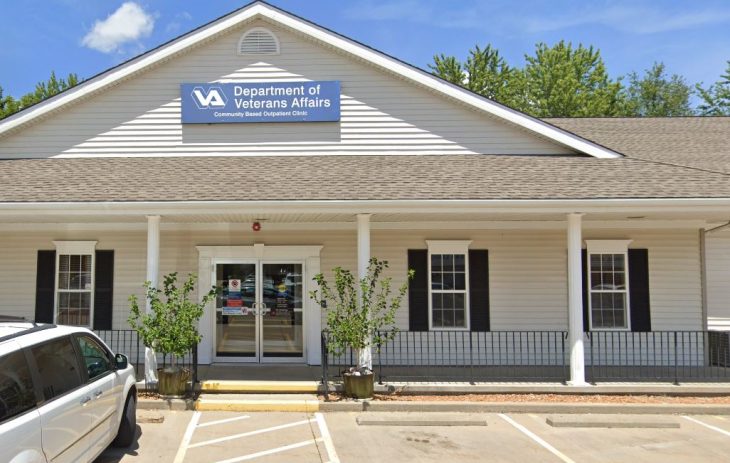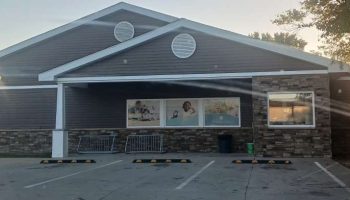About VA Illiana Health Care System Springfield Springfield VA Clinic
Springfield VA Clinic offers psychiatric care, social support services, and programs for homeless veterans. Women veterans can benefit from a specialized program that ranges from mental health counseling to lifestyle wellness and menopause treatment. This facility is located in the southern part of Springfield, Illinois. It sits near I-55 and is pretty easy to reach by car.
Springfield is directly linked to major cities like Chicago and St. Louis. The facility is a short drive from downtown Springfield. That’s where you have the Abraham Lincoln Presidential Library and Museum, Lincoln’s Home and the Illinois State Capitol.
You’ll find this facility very helpful when dealing with depression, anxiety and substance use. They can also address PTSD resulting from past combat experiences. They even help with emotional issues like anger management and relationship challenges. They offer treatment support such as therapy, alternative treatments, and medication when necessary.
Therapy sessions may use proven treatment methods that promote positive behavioral changes to help you break the cycle of unhealthy habits like substance use. Emphasis is on building healthy coping mechanisms that support sustained recovery and prevent relapse. Alternative treatments like yoga, meditation, and acupuncture complement the clinical practices to improve your overall mental and physical wellbeing.
Medication support may be used to better manage withdrawal especially in the case of opiate and alcoholism. They may offer medication management as well. Their social support services ensure sustained recovery. This ranges from help with finance and housing to legal services, transportation, and home health planning.
A particularly unique service available in this facility is homeless veterans’ care. This program offers immense benefits including free health care and linkage to community resources.
Services target only veterans who are homeless or at risk of homelessness. This may be due to financial hardship, unemployment, legal complications, and drug/alcohol addiction. Regardless, the facility supports these folks in regaining control of their lives. Services include immediate food and shelter needs including transitional and permanent housing.
They offer financial support to prevent homelessness as well. You may also receive job training, life skills development and education. This prepares you for a potential career opportunity. The program also includes treatment for substance use and mental issues as well as primary health and dental care. They can facilitate justice system navigation and community reentry from jail for vets involved with the criminal justice system.
You can fund your treatment through Medicaid, Medicare and TRICARE. They accept private insurance and out-of-pocket payments as well. Financial and transportation aid is available on qualifications.
Levels of Care
-
Inpatient
Inpatient and residential programs provide round-the-clock medical and emotional support as you live at the treatment facility. This level of care may be recommended if you have severe addictions or mental health conditions since it removes outside distractions and allows you to focus solely on therapy.
-
Outpatient
In outpatient therapy, you’ll attend therapy sessions several times each week while living at home. This is ideal if you have a strong support system and a lower risk of relapse. Outpatient treatment offers flexibility to maintain work, school or family obligations.
-
Aftercare
Aftercare programs provide ongoing support after you complete a rehab program. They may include several components to help you maintain sobriety including therapy, community support groups and relapse prevention strategies. This gives you a network of resources as you reintegrate into your daily life.
-
Dual Diagnosis
Dual diagnosis programs address substance use disorders and co-occurring mental health conditions simultaneously. This integrated approach to care improves the likelihood of long term recovery and stability by addressing the root causes of addiction.
-
Intervention
An intervention is a structured and professionally guided conversation with an individual who is struggling with addiction. During the conversation, family and friends will encourage you to seek treatment. This is often a pivotal step for those resistant to getting help.
Detox Service Setting
-
Inpatient Detox
Inpatient detox occurs in a dedicated treatment facility. You’ll live there around the clock and receive intensive medical support and supervision to help manage your withdrawal symptoms. It is suitable for individuals with moderate to severe addictions as it ensures a stable detox environment.
-
Outpatient Detox
Outpatient detox gives you access to medically supervised withdrawal services while still allowing you to live at home. You’ll attend a clinic for treatment and monitoring. This flexible option is suitable for those with mild to moderate withdrawal symptoms who have strong support systems.
Programs
-
Adult (18+)
Adult programs address the substance use and life challenges specific to adults. Therapists can deliver sessions in individual, group and family settings. Services often include job support and life skills training in a structured environment.
-
Alcohol Detox
Alcohol detox programs offer medical support to help individuals withdraw safely from alcohol. Your care team may use medications to ease your symptoms and provide medical monitoring to address complications.
-
Cognitive Behavioral Therapy
Cognitive behavioral therapy focuses on changing harmful thought patterns and behaviors associated with addiction. You’ll learn healthier coping mechanisms by identifying and replacing negative thoughts. This improves your emotional resilience and decreases your relapse potential.
-
Men
Men's programs address substance use while also considering the social pressures, family roles and mental health concerns that are specific to men. You’ll learn healthy coping mechanisms as you build emotional resilience and develop communication skills.
-
Military / Veterans
Military and veteran programs offer specialized support for clients who served in the armed services. Programs focus on reintegration and healing within a structured and supportive environment that acknowledges the unique struggles of military life.
-
Opioid Detox
Opioid detox uses medications to ease severe withdrawal symptoms. It also includes medical supervision to help you manage potential complications. These services allow you to stabilize and begin a recovery plan.
-
Seniors (65+)
Senior programs address the unique needs of older adults like chronic pain, grief and isolation. Programs include peer support and medical oversight for age related health concerns. The goal is to improve quality of life and promote sober aging.
-
Women
Women's programs offer a safe and supportive space to focus on gender specific issues such as trauma, family roles and mental health conditions. Therapists tailor the sessions to address women's needs and foster empowerment in a healing and nurturing environment.
Payment Options
- Medicaid
- Medicare
- Military Insurance
- Private Insurance
- Self Pay
Accreditations
-
 Joint Commission
Joint Commission
Contact
5850 South 6th Street Suite A
Springfield, IL 62703





